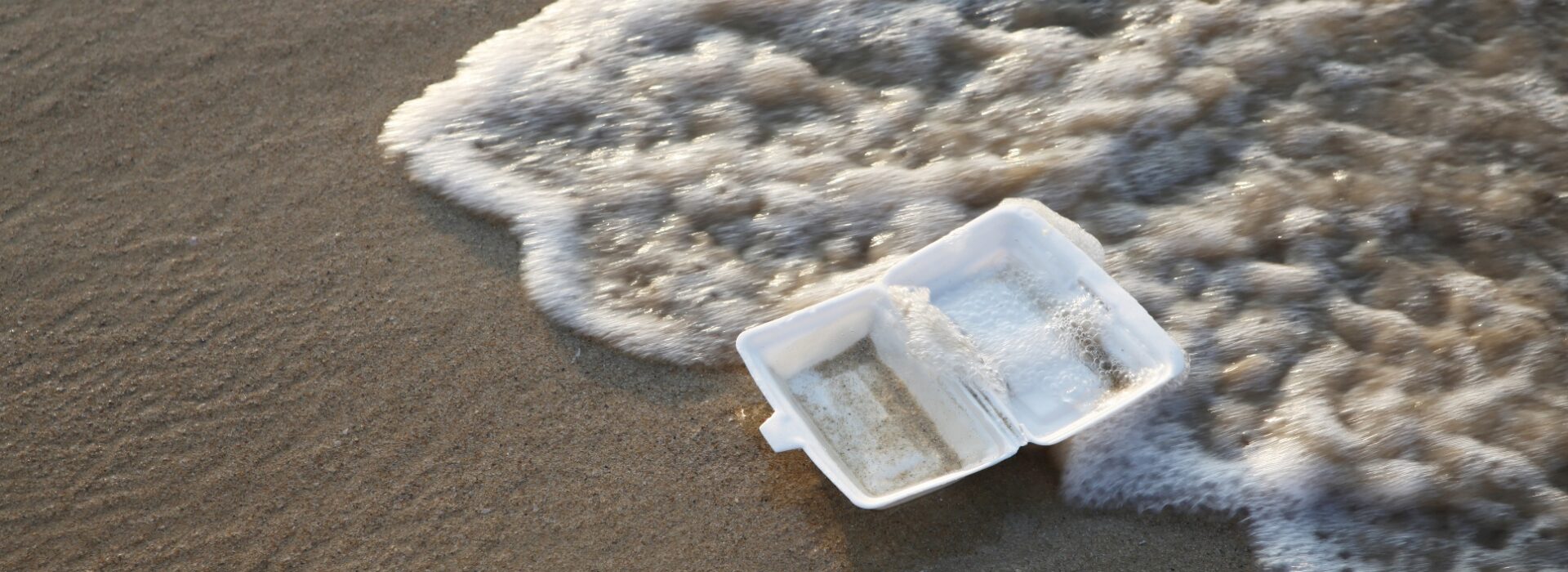An evaluation process led by the European Commission will begin in 2025, engaging all relevant stakeholders to assess the need for a revision of the SUP Directive, possibly with adjusted and/or more measures or items included in its scope. The newly adopted EU packaging regulation (PPWR) also added new single-use plastics to the current list of market restrictions under the SUP Directive, such as foam packing peanuts, luggage wrap in airports, and multipack plastic rings.
Rethink Plastic’s 2024 evaluation of the directive, builds on the previous transposition and implementation assessments made since 2019, as well as recent assessments from its members on the state of play of the directive’s implementation in their respective countries.
The evaluation shows positive examples of how some Member States (Belgium, France, Greece, Portugal and Spain) have gone above and beyond the directive’s restrictions by banning more single-use plastics related to food and beverages. Other implementation leaders include Denmark, France, Romania and Spain who are already enforcing tethered plastic bottle caps, for example.
The report also reveals low ambition countries such as Romania and Hungary and enforcement laggards such as Cyprus and Greece, where banned items such as plastics straws and cutlery still widely sold or offered free of charge in takeaway restaurants.
This report published today highlights the positive impact that the SUP Directive has had, both in raising awareness about single-use plastic pollution and in promoting a preventative approach to the global plastic pollution crisis, rather than relying on clean-up and recycling-focused mitigation measures.
Read the complete report here.
NOTES TO THE EDITOR:
Directive (EU) 2019/904 on single-use plastics, adopted on 5 June 2019, aims to reduce the impact of plastic products on the environment and human health, particularly in marine environments. It imposes restrictions on certain plastic products (banning items such as plastic straws, plates and cotton buds), collection and recycling targets for plastic bottles, and obligations on producers to finance clean-up and raise awareness. This directive is part of the European Union’s efforts to promote a circular economy and reduce plastic waste. The Commission shall carry out an evaluation of this Directive by 3 July 2027.
Link for the Single Use Plastic Directive: https://eur-lex.europa.eu/legal-content/EN/TXT/?uri=CELEX%3A32019L0904&qid=1733493095701
Main findings: An essential directive to reduce plastic pollution
A wide implementation of Single Use Bans
Among the measures of the SUP Directive that were very well implemented across the board are the bans on certain single-use plastic items, also called “market restrictions”, introduced by article 5. These market restrictions target largely unnecessary and replaceable items such as plastic straws, plates, cutlery, polystyrene cups, cotton buds, stirrers and balloon sticks.
some Member States have even exceeded the Directive’s ambitions and adopted additional bans.
However, the transposition and implementation of the SUP Directive faced delays.
One of the reasons used by Member States to explain this delay was the COVID-19 pandemic which hit Europe in February 2020.
Consequently, many EU Member States did not meet the official transposition deadline. In 2022, the European Commission initiated infringement procedures against 11 Member States (including France, Belgium and Poland). The European Commission also started conformity checks of the national measures, transposing the SUP Directive in the Member States in 2023.
Public awareness (article 10 of the SUP Directive): a mixed picture
The implementation of the Directive led to a widespread phase-out of unnecessary and replaceable items (straws, plates, cutlery…) significantly increasing public awareness about the pollution they cause and highlighting the importance of reducing the use and production of single-use plastics overall. However, there has been a significant lack of awareness raising efforts on the environmental impacts and alternatives to single-use plastics in some countries, and national awareness strategies could help supporting these.
SUP marking is well implemented but “reusable” labels mislead customers
A visible label on packaging to indicate it contains plastic and its associated environmental impact – for non-banned SUP items such as tobacco products, wet wipes, beverage cups and sanitary items (article 7) has generally been very well implemented across Europe.
In some countries such as France, Ireland, Portugal, Cyprus, Spain, the Netherlands, Bulgaria, Romania and Belgium, some distributors continued to sell single-use plastic plates and/or cutlery, with misleading claims presenting them as “reusable”. This leads to the encouragement of greenwashing practices with “reusable” labels being used on disposable containers, giving the misconception that single-use items are sustainable.
Awareness-raising provisions: important lacks
Since 2019, there has been a significant lack of awareness raising efforts on the environmental impacts and alternatives to single-use plastics in some countries, such as Lithuania, Belgium, France, Croatia, Germany, Netherlands, Hungary, Poland, Romania, Cyprus and Slovakia. In these countries, efforts have been minimal or non-existent, with no visible campaigns to increase the public understanding of SUP-related environmental concerns.
The remaining challenge is achieving consumption reduction
Ambitious targets to reduce the consumption of SUP items by 2030 have been set in Portugal (90%), France (100% for packaging, 50% for bottles), Sweden (70%), Spain (70%), Slovenia and Greece (both 80%), yet it is difficult to assess if these countries have already sufficient measures put in place to achieve these targets.
The future of the Single-Use Plastic Directive
The Directive has been a pivotal policy tool in addressing the issue of single-use plastic pollution. Its implementation has driven long-term effort in reducing plastic waste, by setting clear targets for reduction, collection, and recycling. There is still room to expand the scope of items to address the toxicity of plastic and its impacts on both the environment and health and tackle the impacts of plastics all along the value chain.
Through this report (in its chapter 3) Rethink Plastic make a few proposals to strengthen the Directive in the perspective of its revision. Among them:
- Single-use cups and food containers deserve an EU-wide consumption reduction target. These items are widely consumed in the form of takeaways and represent a significant part of the municipal waste. It is important, however, that these items are addressed under a material neutral approach, including paper-based application
- Cigarette butts are also among the most widespread forms of litter in the European environment. We recommend the Commission to consider such a ban in future legislation.
- Sanitary towels, tampons and applicators also have potential to be further addressed, encouraging the widespread availability of toxic-free and reusable menstrual products, in particular in large retailer outlets and pharmacies across the EU (which should at least match the proportion of single-use items on sale), accompanied by awareness-raising measures on the benefits of reusable compared to single-use menstrual products.
- We question the added value of keeping multi-layered packaging on the market, such as beverage cartons and cans, and recommend banning these, as these materials prove difficult, if not impossible, to reuse or recycle.
- Fireworks with plastic pieces should be banned since there are now plastic-free fireworks widely available in Europe and beyond.
- Market restrictions or consumption reduction measures would be welcome for fishing and aquaculture gear for which more sustainable alternatives exist, such as buoys, floats and fish boxes.
The evaluation of the effectiveness of the Single-Use Plastic Directive across EU Member States reveals both remaining challenges and significant successes. However, the Directive’s continued success will depend on addressing gaps. To overcome these shortcomings, clear and detailed guidance is necessary, both coming from the EU and the national institutions involved in the implementation and enforcement of the Directive.



